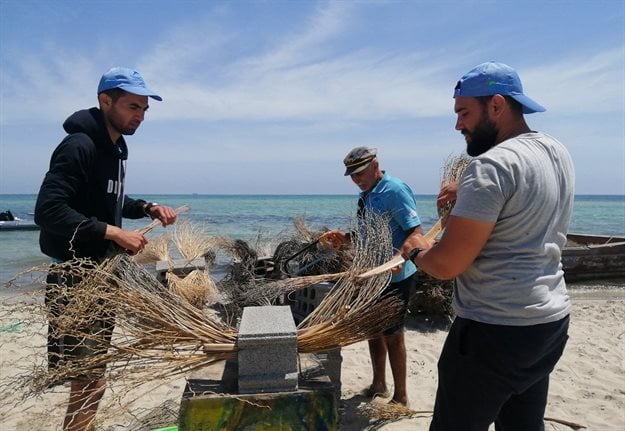Palm fronds and stones: creating reefs to heal Tunisia's polluted seas

Members of the Notre Grand Bleu organisation make the reefs from palm branches fixed to the seabed with stones to create spaces for cuttlefish and other creatures to lay eggs.
Pollution - caused by climate change, untreated sewage, plastics, fish farming and industrial discharges - has affected much of the Tunisian coast, said the organisation's president, Ahmed Souki.
However, the organisation says it cannot afford a scientific study to assess how widely pollution has killed off sea life in Tunisian waters.
Artificial reefs off Monastir
It has started creating the artificial reefs off Monastir, a popular beach resort.
"We wanted to be part of the solution, by placing palm branches with stones," said Manel Ben Ismail, a director at the group.
In the past, coastal farmers would throw palm fronds into the sea after harvesting dates. On the seabed the plants fostered marine life, said Souki.
"We wanted to return to this technique," he added.
The organisation said it was too early to provide data on the success of its scheme. But video footage shows sea urchins and other creatures using the artificial reefs it has created.
Source: Reuters

Reuters, the news and media division of Thomson Reuters, is the world's largest multimedia news provider, reaching billions of people worldwide every day.
Go to: https://www.reuters.com/












